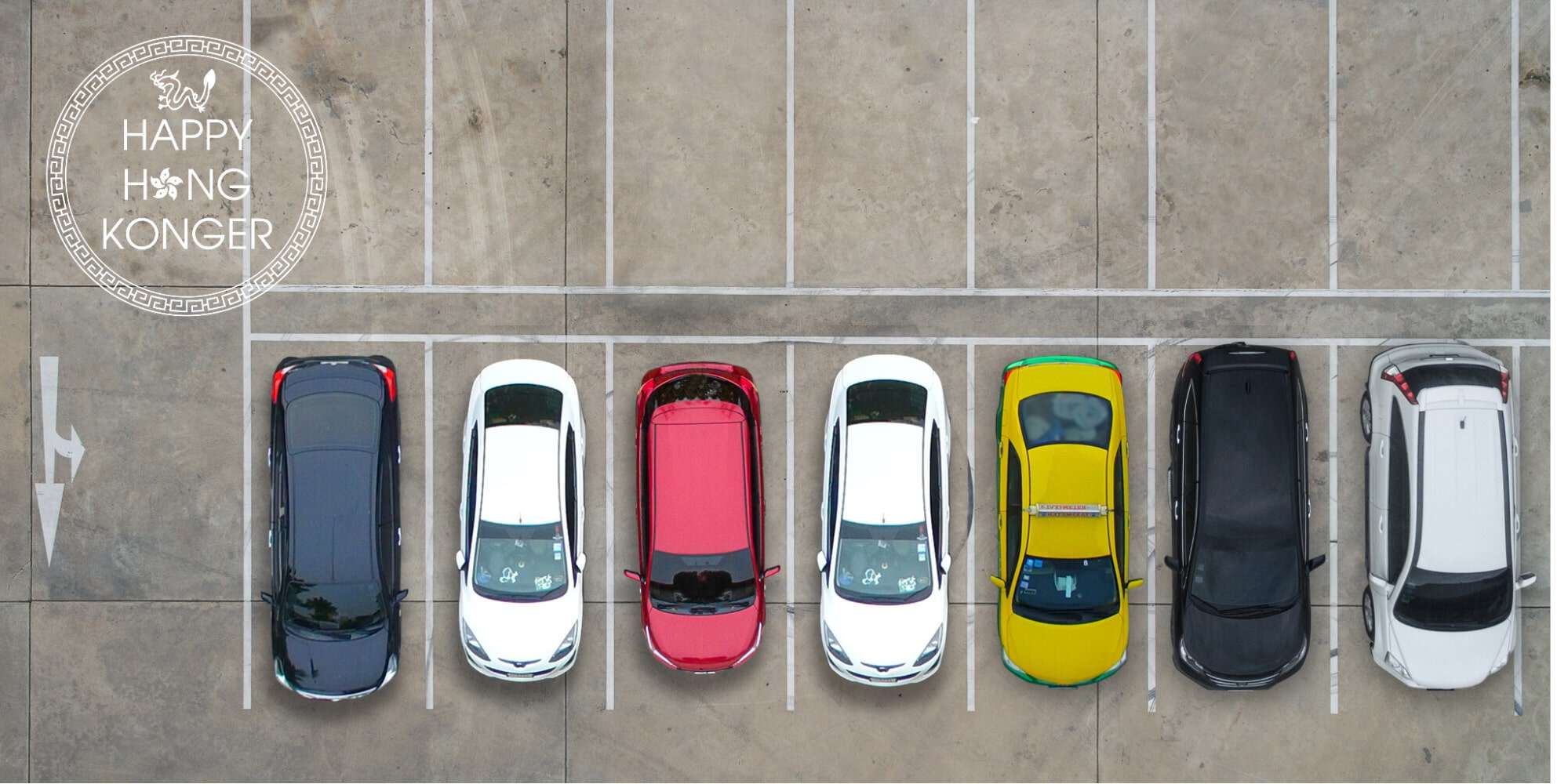Categories > Guides and Tips

Are parking lots for private cars a good investment in Hong Kong?
- Are parking lots for private cars a good investment in Hong Kong?
- Understanding Hong Kong's Parking Space Demand
- High Density, High Demand
- Car Sharing on the Rise
- Electric Vehicles Changing the Game
- The Considerations for Parking Lot Investment in Hong Kong
- Building Deed of Mutual Covenant Rules
- High Investment Costs
- Bank Loan Challenges
- Buying an Existing Parking Lot
- Car Park Location
- Potential for Long-Term Growth
Even though my passion is in trading, I also love looking into ways I can diversify my portfolio. One of the opportunities that I looked into was parking lots here in Hong Kong.
Curious about what I found? Dive in to learn more.
Are parking lots for private cars a good investment in Hong Kong?
Investing in parking lots for private cars in Hong Kong can be a good investment since the demand for parking spaces in Hong Kong is high and the prices and rental yields of parking spaces are typically attractive.
However, parking spaces can be expensive to purchase, and it’s important to do your research before sinking money into one.
Understanding Hong Kong’s Parking Space Demand
Investing in parking lots for private cars in Hong Kong might seem counterintuitive considering the relatively low car ownership rates in the city.
However, the demand for parking spaces remains surprisingly high, and there are several compelling reasons behind this phenomenon.
High Density, High Demand
Hong Kong’s sky-high population density means there’s intense competition for space. Even in areas where car ownership rates are low, the limited available space makes parking spots a precious commodity.
The sheer scarcity of land amplifies the demand for parking spaces, creating a consistent need despite low car ownership rates.
Car Sharing on the Rise
Car-sharing services are gaining immense popularity in Hong Kong. These services offer an affordable and convenient way for people to access cars when necessary.
As more residents opt for car sharing, the demand for parking spaces in areas served by these services has spiked. People still need a place to park these shared cars, contributing to the demand for parking facilities.
Electric Vehicles Changing the Game
With the increasing emphasis on environmental sustainability, electric vehicles (EVs) have become a hit in Hong Kong. They’re eco-friendly and more fuel-efficient than traditional cars.
However, EVs require charging stations, and these stations are typically located in parking lots. As the number of electric vehicles on the roads grows, so does the need for parking spaces equipped with charging infrastructure.
As a result of these factors, the demand for parking spaces in Hong Kong is expected to remain strong, even as few people own a car in Hong Kong.
The Considerations for Parking Lot Investment in Hong Kong
Considering jumping on the bandwagon of investing in parking lots for private cars in Hong Kong? Good for you! But before you make any decisions, let’s chat about the essential things you should keep in mind when diving into the world of parking lot investments.
Building Deed of Mutual Covenant Rules
First things first: the Building Deed of Mutual Covenant (DMC). You need to dig into the DMC of the building where you’re eyeing parking spaces.
The DMC tells you whether you can rent or sell parking spots to non-residents or if the buyer/tenant must be an existing resident of the building. It may also cover potential restrictions on leasing parking spaces for commercial vehicles.
Now, if there are restrictions like these stated in the DMC, then your pool of revenue can be slim. Contrast that to a building where the DMC is fairly relaxed – you can welcome almost any type of client you want, which means more potential clients.
Some investors have learned this the hard way, losing their deposits because they didn’t realize there were restrictions on potential tenants. Don’t let that happen to you! Understanding the DMC rules is your ticket to a smart investment.
High Investment Costs
When you’re eyeing a parking space as an investment in Hong Kong, mind your budget. It’s all too easy to overpay or miss a crucial payment when you’re not keeping an eye on the numbers!
There are hefty down payments and mortgage costs involved, so you need to keep in mind how much money you can borrow and, more importantly, how much you’ll be shelling out every month.
Bank Loan Challenges
Constructing a parking lot from scratch involves significant expenses. Affordable land is scarce, and even if found, the high costs of labor, materials, and specialized construction techniques add up.
As a ballpark figure, starting a parking lot project may range between HK$ 1.6 million and HK$ 3.2 million, factoring in all construction and land costs. Most people will need a bank loan to finance that.
But there are borrowing limits. Banks will lend you only a portion of the total price, usually up to 40% for independent parking lots. You’ll normally have 15 years to pay back this loan.
Banks have become stricter about who they lend money to, especially for parking spaces.
They look at how much you earn versus how much you owe (like other loans or credit card payments).
Now, they want to make sure you’re not spending more than 40% of your income on debt. This means you need to have more money left over after paying your debts (the keyword here is your debt-to-income or DTI ratio!).
Moreover, banks do a stress test to see if you can handle higher interest rates in the future. If you can’t handle these higher rates, the bank might offer you a smaller loan. So, you might get approved for a smaller loan than you expected.
Buying an Existing Parking Lot
For those seeking a more immediate solution, purchasing existing spaces is a viable option. In 2022, the average cost per parking space was approximately HK$ 1.75 million, presenting a comparatively cheaper alternative than built-from-scratch parking lots.
In particular, residential car parking spaces can offer a reassuring start. These properties are known for their smaller yet stable price range, making them an attractive entry point into the realm of parking lot investments.
Similar to getting a loan to construct from scratch, you can also take a loan to buy an existing parking lot. These can be called car park loans or special loans from HK banks (don’t worry, it’s just a difference in terminology).
Just note that banks are now being more cautious, making it a bit tougher to get loans for parking spaces now.
Car Park Location
In Hong Kong, people are super-picky about where they park their cars. So, as an investor, you’ve got to be picky too.
Think about the location of the parking space. Is it close to the entrance or exit? Is it spacious enough for larger cars?
Speaking of space, you want to make sure it can fit a variety of cars. If it’s roomy, it can attract all sorts of tenants, from small cars to big 7-passenger ones.
But if it’s too small, you’ll limit your options, which can affect how much you can charge for rent.
Check for turnaround space as well: you don’t want a tight squeeze. Watch out for columns that might block cars. Think about whether it’s an open lot or an indoor one.
And, believe it or not, even the water pipes on the ceiling matter. Leaks can damage cars, and that’s not good for business.
Potential for Long-Term Growth
In Hong Kong, securing a successful parking lot investment means understanding the unique dynamics of supply and demand.
Consider the housing estate’s parking-space-to-resident ratio. If the ratio is one-to-one, indicating sufficient parking, the investment’s growth potential might be limited.
However, if there’s a scarcity of parking spaces compared to households, the demand skyrockets, offering significant appreciation potential.
Additionally, assess the estate’s size and residents – larger family-oriented estates naturally foster a higher demand for parking. Smaller, single-user residences might yield fewer tenants.
Above all, avoid impulsive decisions driven by the promise of quick returns. Evaluate the local geography and lifestyle factors. For instance, if the area naturally attracts car owners, your investment is more likely to flourish.
Taking these factors into account ensures a thoughtful, strategic approach, paving the way for long-term success in Hong Kong’s parking lot investments.





